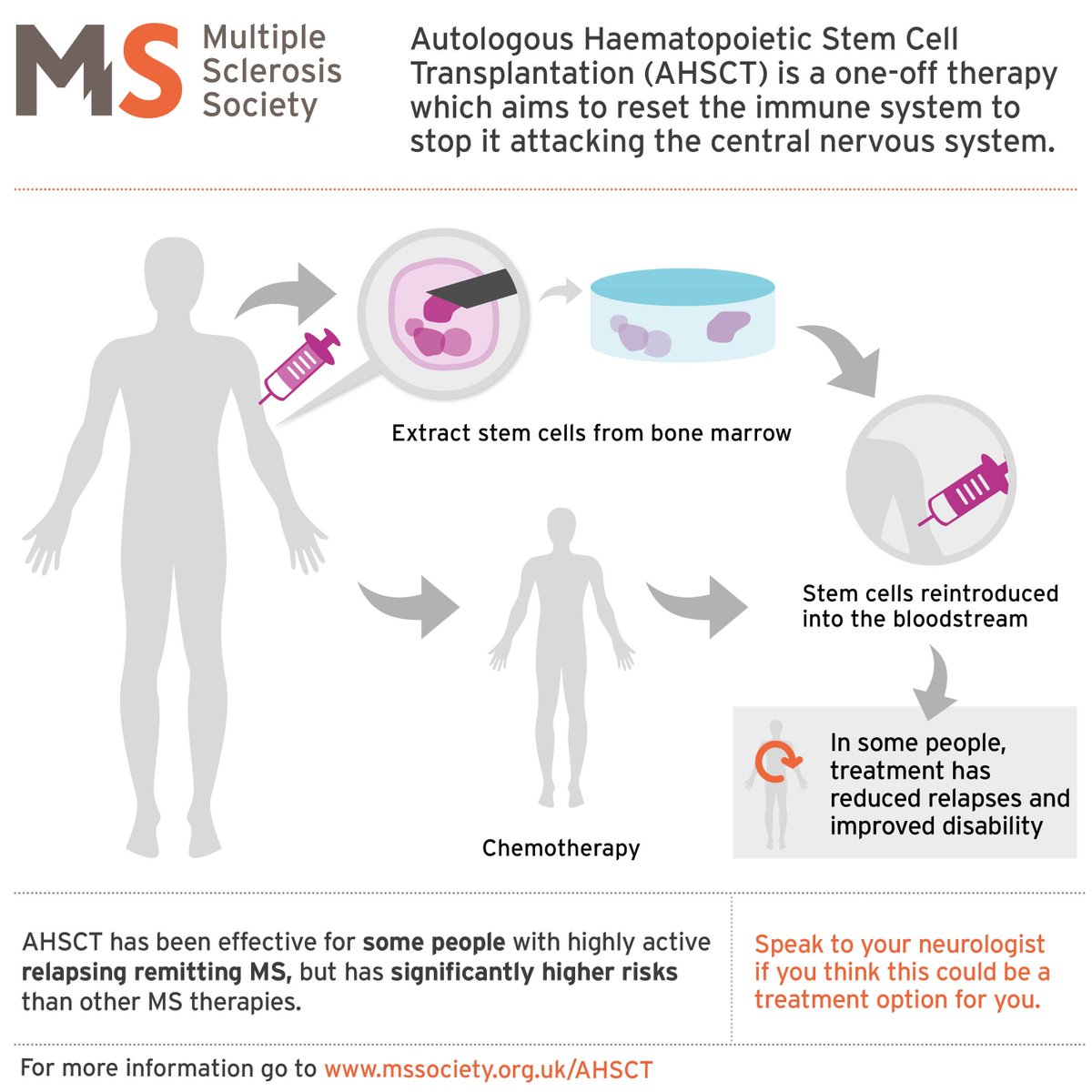7 things you need to know about stem cell treatment for #MS
(HSCT) #MultipleSclerosis
http://mssoc.uk/1WmE5Pq

7 things you need to know about AHSCT
Posted on 18 Jan 2016 at 8:57AM by Sarah Foxton

Ahead of tonight’s BBC Panorama documentary ‘Can You Stop My Multiple Sclerosis', we've put together some facts about autologous haematopoietic stem cell transplantation (AHSCT).
Ultimately, we need more studies to understand the long term effects of AHSCT. So far, the longest follow up study to date revisited people who had received the transplant an average of 6.6 years later.
Meet the Professors behind stem cell transplantation

Ahead of tonight’s BBC Panorama documentary ‘Can You Stop My Multiple Sclerosis', we've put together some facts about autologous haematopoietic stem cell transplantation (AHSCT).
1. What does AHSCT mean?
AHSCT (sometimes referred to as HSCT) stands for Autologous Haematopoietic Stem Cell Transplantation. Haematopoietic refers to the type of stem cells used in the treatment which are found in the bone marrow and blood. Autologous means ‘from the same place’ as the stem cells used in the procedure are the person’s own.2. What happens in AHSCT?
It’s a one-off procedure involving taking haematopoietic stem cells from your bone marrow or blood, wiping out your immune system with chemotherapy and then reintroducing them to your body.3. How does it work?
The aim of AHSCT is to reset the immune system to stop it from attacking the central nervous system. It doesn’t rebuild damaged nerves - these aren’t the kind of stem cells you may have heard about in relation to building organs in a laboratory for example.4. Is it effective?
It has been an effective treatment for SOME people with MS. The best results so far have been seen in people with highly active forms of relapsing MS but so far it doesn’t look to be effective for progressive MS because it can’t repair damage already done.5. What are the risks?
It has a higher risk than current MS therapies, carrying a 1.3% mortality rate. This means one to two people die from the treatment for every 100 people who receive it.6. Who can perform AHSCT?
Any centre performing transplantations, for MS or any other condition, should have a Joint Accreditation Committee-ISCT and EBMT (JACIE) licence. You must be referred to somewhere carrying out AHSCT for MS through a healthcare professional.7. What does the research tell us?
A number of clinical trials have shown AHSCT can reduce relapses and stabilise or improve disability in people with RRMS. An international clinical trial of AHSCT, called the MIST trial, is currently ongoing with a centre in the UK participating.Ultimately, we need more studies to understand the long term effects of AHSCT. So far, the longest follow up study to date revisited people who had received the transplant an average of 6.6 years later.
Help fund research to beat MS
>> Donate today to support our research programmeRead more
AHSCTMeet the Professors behind stem cell transplantation
Post tagged with:
Link: https://www.mssociety.org.uk/ms-research/research-blog/2016/01/7-things-you-need-know-about-ahsct?utm_source=Twitter&utm_medium=link&utm_campaign=panorama_ahsct&utm_content=seven_things_blog
No comments:
Post a Comment